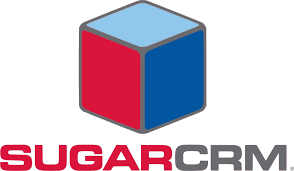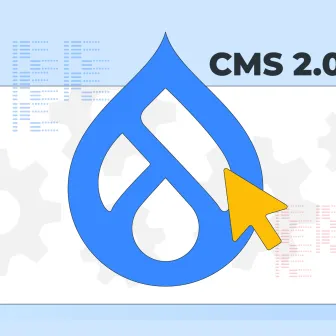“How you gather, manage, and use information will determine whether you win or lose”
-Bill Gates
Gone are the days when businesses had to rely on stand-alone mainframe systems, or on statistical methods to analyze and gather customer data to bring them into their sales cycle.

There has been no looking back since the first customer evaluation system was launched in 1986 which provided contact management services.
Ease of CRM integration with web technologies is a quantum leap in the field of marketing. A CRM or SaaS CRM can be integrated with an automated marketing platform or a website to help not only in enhanced contact management but empower sales management too.
But CRMs have gone beyond sales and marketing. Covering their traditional role too, CRMs, today, can deliver powerful benefits to the organization ranging from HR to customer service to supply-chain management.
Introducing CRM and its Importance
In simple words - CRM helps users focus on their organization’s relationships with individual people including all the stakeholder from customers, service users, to colleagues.
In a conventional role, a CRM software records customer contact information such as email, telephone, website social media profile, and more. It can then automatically pull in other information, such as recent news about the company's activity, and it can store details such as a client's personal preferences on communications, to help personalize the content.
The CRM system organizes this information to give you a complete record of individuals and companies, so you can better understand your relationship over time.
A CRM enhances customer relationship management by giving in on all the information and choices of the customer, capturing their interactions with the business, and bringing forth such information to provide better conversations.
Why is a CRM Important?
The purpose of this article is to give you a clue about which CRM integration module would be best for your Drupal website. But it would be all futile if we don’t understand the importance of the CRMs or if we don’t come out of the conventional roles of CRMs.
Salesforce rightly defines the ten CRM benefits:
1. Enhanced contact management
2. Cross-team collaboration
3. Heightened productivity
4. Empowered sales management
5. Accurate sales forecasting
6. Reliable reporting
7. Improved sales metrics
8. Increased customer satisfaction and retention
9. Boosted marketing ROI
10. Enriched products and services
What are the CRM integration modules for a Drupal Website?
Here we look at some of the best enterprise level CRM Integrations available for your Drupal website. These modules will assist you in managing your CRM strategy better.
Three Drupal 8 CRM integration modules
- Salesforce Suite

The first in the list is always special. The popular Salesforce CRM has its Drupal integration modules called Salesforce Suite and it is our top choice.
The suite of modules supports integration with Salesforce by synchronizing Drupal entities (users, node, files) with Salesforce objects (such as contacts, organizations, opportunities).
It supports the exchange of data between Drupal and Salesforce. Changes can be made in real time or asynchronously in batches during cron run.
Here’s a quick guide on integrating Salesforce suites module with Drupal website.
- Webform SugarCRM Integration
 SugarCRM is another popular Customer Relation Management System. However, the Webform SugarCRM Integration provides integration with SugarCRM for Webform submissions.
SugarCRM is another popular Customer Relation Management System. However, the Webform SugarCRM Integration provides integration with SugarCRM for Webform submissions.
The module provides easy to use webform component mapping interface and SugarCRM configuration page. Each form component can be mapped to any field from all modules in respective SugarCRM system. On submission new record will be set in mapped CRM modules.
This module only provides an option to use the CRM integration class and extend with additional methods which can cover the specific requirements.
The module lets you alter the form according to your requirements. These are the three features that the module primarily provides:
- Integration with SugarCRM for Webform submissions
- Mapping interface for Webform components
- Customizable
- RedHen CRM
 As the official Drupal page mentions, the RedHen is a Drupal-native CRM initially designed for common nonprofit needs, but built for flexibility.
As the official Drupal page mentions, the RedHen is a Drupal-native CRM initially designed for common nonprofit needs, but built for flexibility.
The module provides a classic CRM functionality for managing information about contacts, organizations, and their relationships with each other and your organization (like memberships).
Using artificial intelligence the module smartly incorporates some modern tricks like engagement tracking and customizable one-page donation forms.
Four Drupal 7 CRM integration modules
- amoCRM
 amoCRM is a web service for your sales management. Businesses can use amoCRM to manage their leads and pipeline.
amoCRM is a web service for your sales management. Businesses can use amoCRM to manage their leads and pipeline.
amoCRM module allows you to configure creation, editing and deleting of leads, contacts and companies, recover of leads, change the status of leads. Any option that relies on the dependent modules.
Adding your leads to amoCRM will ensure that leads are taken care of.
- Pardot Integration
Pardot is SaaS marketing automation application that allows marketing and sales departments to create, deploy, and manage online marketing campaigns that increase revenue and maximize efficiency.
Drupal Pardot adds Pardot web analytics integration to Drupal.
Following are the features that it provides:
- Default campaign for web activity tracking.
- Conditional path and user role web activity tracking.
- Path-based individual campaign tracking.
- Path-based scoring
- Core contact form integration
- CiviCRM Entity
CiviCRM Entity is a Drupal module which exposes many CiviCRM API entities as true Drupal entity types. That means that almost any module that can use Drupal entities can also access and manipulate CiviCRM data, Drupal style.
This module integrates nearly 40 CiviCRM entities as Drupal entities by wrapping CiviCRM API calls in extended Drupal Entity controllers. Extendable by custom modules or CiviCRM extensions to add or alter entities.
- Contacts
- Addresses
- Emails
- Phones
- Events
- Participants
- Contribution Pages
- Contributions
- Line Items
- Financial Transactions
- Price Sets, Price Fields, Price Field Values
- Activities
- CRM Core
 CRM Core allows you to manage contacts, activities, and relationships in your Drupal website. It provides a set of modules for managing contacts, activities, and relationships within your Drupal website.
CRM Core allows you to manage contacts, activities, and relationships in your Drupal website. It provides a set of modules for managing contacts, activities, and relationships within your Drupal website.
It is designed to provide a basic framework for managing these items and interacting with other components of Drupal.
CRM Core is not a contact relationship management system itself, so much as a tool for developing your own systems for managing contact relationships
It provides extensive support for these entities and includes a number of tools to make them easier to support in your Drupal website.
In addition to these basic features, CRM Core integrates with a number of other components within Drupal, including Views, VBO, CTools, Rules, Solr, Services, Field API and Search API.
Other Drupal Modules
These are the modules which are important otherwise but don’t have a stable module version in Drupal (neither 7 nor 8)
- Hubspot
Hubspot module integrates with Webform and the HubSpot API to submit Webforms directly to HubSpot's lead management system.
A webform-based contact form on your site can send its data to HubSpot, where you may already track potential clients and contacts; or a Webform-based e-newsletter signup could send the lead to HubSpot's targeted marketing system, letting you use your pre-existing email campaigns.
- OpenInbound for Drupal
 OpenInbound tracks contacts and their interactions on websites. OpenInbound is a solution for Online Marketers who want to apply modern Content/Inbound Marketing tactics on websites.
OpenInbound tracks contacts and their interactions on websites. OpenInbound is a solution for Online Marketers who want to apply modern Content/Inbound Marketing tactics on websites.
Key functionality
- Marketing dashboard
- Digital Marketing CRM
- Contact/Lead/Session tracking
Conclusion
Despite the general notion that CRM systems were created for the customer-centric businesses, they can also be applied to B2B environments to streamline and improve customer management conditions. For the best level of CRM operation in a B2B environment, the software must be personalized and delivered at individual levels.
Subscribe
Related Blogs
Drupal's Role as an MCP Server: A Practical Guide for Developers

"The MCP provides a universal open standard that allows AI models to access real-world data sources securely without custom…
What’s New in Drupal CMS 2.0: A Complete Overview

"Drupal CMS 2.0 marks a significant change in the construction of Drupal websites, integrating visual site building, AI…
Drupal AI Ecosystem Part 6: ECA Module & Its Integration with AI

Modern Drupal sites demand automation, consistency, and predictable workflows. With Drupal’s ECA module, these capabilities…




